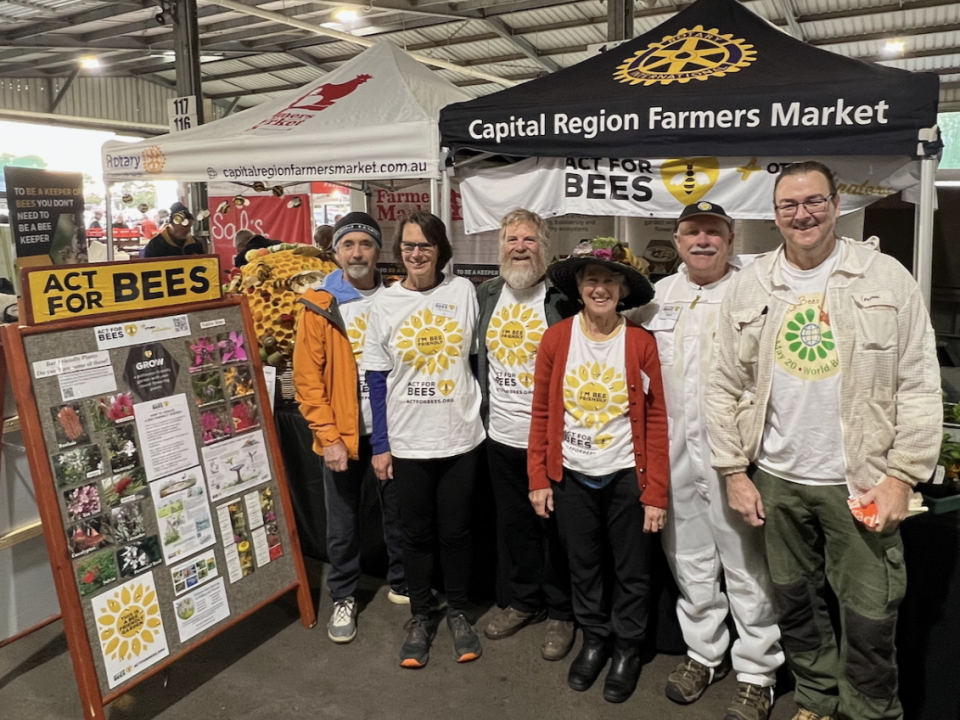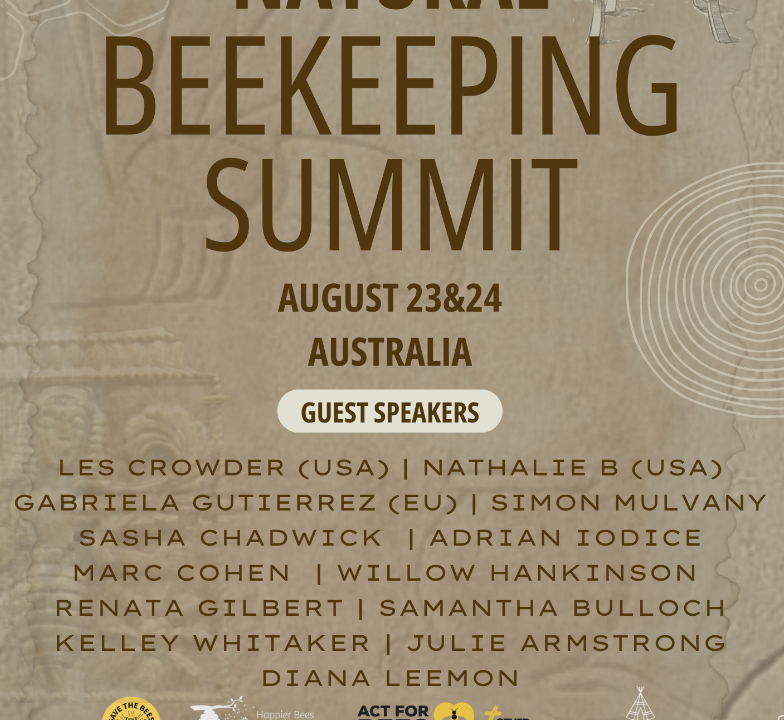Let’s all celebrate World Bee Day May 20th
May 2, 2018ACT For Bees, A Voice For The Bees
August 22, 2018 So now that we are in the middle of winter, all the bees are fast asleep in their hives, catching up on their ZZZZZs, right? Wrong! Honey bees don’t hibernate. They have a very important job to do in cold climates. They need to ensure their Queen and sisters survive the winter. They do that by forming a cluster deep in the hive. They flutter their wings and shiver to keep themselves warm. The Queen is in the middle of the cluster and the bees rotate themselves around so everyone keeps warm, a bit like the Emperor Penguins in Antarctica. As they are all awake and moving, they rely on their stored honey to get them through to Spring. Hopefully, it was a good year and some human hasn’t taken it all. When the temperate reaches 10 degrees Celsius, the bees leave the hive, to get some exercise and do what bees do, forage for nectar. There are still lots of flowers around. I had a peek around my neighbourhood and found Rosemary , Correa, Camellias and Grevilleas in flower. The honey bees particularly loved the Camellias and Correas as the photos show. Other wintering flowering plants popular with bees include Banksia, Hebe, Hakea and Cherry Plum. If you don’t have any of these flowering in your garden, pop down to your local nursery or Botanical Gardens, see what is flowering, observe if any bees are attracted to them or consult the plant list in the Resource section of this website and buy some for your garden or balcony.
So now that we are in the middle of winter, all the bees are fast asleep in their hives, catching up on their ZZZZZs, right? Wrong! Honey bees don’t hibernate. They have a very important job to do in cold climates. They need to ensure their Queen and sisters survive the winter. They do that by forming a cluster deep in the hive. They flutter their wings and shiver to keep themselves warm. The Queen is in the middle of the cluster and the bees rotate themselves around so everyone keeps warm, a bit like the Emperor Penguins in Antarctica. As they are all awake and moving, they rely on their stored honey to get them through to Spring. Hopefully, it was a good year and some human hasn’t taken it all. When the temperate reaches 10 degrees Celsius, the bees leave the hive, to get some exercise and do what bees do, forage for nectar. There are still lots of flowers around. I had a peek around my neighbourhood and found Rosemary , Correa, Camellias and Grevilleas in flower. The honey bees particularly loved the Camellias and Correas as the photos show. Other wintering flowering plants popular with bees include Banksia, Hebe, Hakea and Cherry Plum. If you don’t have any of these flowering in your garden, pop down to your local nursery or Botanical Gardens, see what is flowering, observe if any bees are attracted to them or consult the plant list in the Resource section of this website and buy some for your garden or balcony.
By the way, if you are wondering about the Australian solitary native bees, well they kind of hibernate, catching up on their ZZZZs so you probably won’t see any of them around until Spring.
NEWSFLASH – Fake News about feeding bees in Winter.
http://www.abc.net.au/news/rural/2018-07-13/fake-bee-feeding-facebook-post-taken-down/9989770
In the words of Donald Trump, there has been Fake News! Sir David Attenborough did not post an article encouraging people to feed a teaspoon of sugar water to help struggling bees. Feeding bees sugar and water or worst still, putting out honey which can contain a terrible disease (American foul brood), will not help the bees. The best thing to do is plant flowers that can provide the bees with nectar and pollen, their natural food.
Desiree Heather



